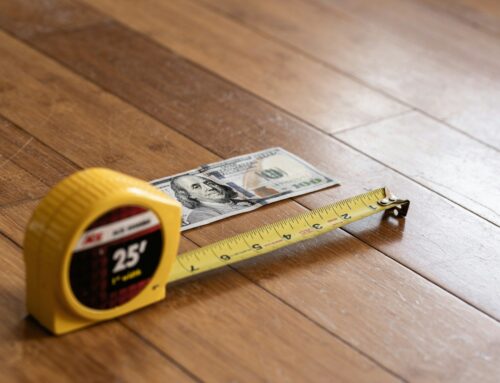You didn’t build your HVAC business to sell it under pressure, but for too many owners, that’s exactly what ends up happening. A few financial missteps, some missed warning signs, and suddenly you’re not negotiating from a position of strength; you’re scrambling to exit a sinking ship.
If you’re starting to feel the strain or wondering whether you’re heading toward an unwanted sale, now is the time to get honest about what’s not working. A failing HVAC company doesn’t happen overnight. It’s usually the result of compounding misjudgments, many of which are avoidable with the proper insight and action.
Here’s what to watch for before small cracks become fatal flaws.
Neglecting Cash Flow Discipline
HVAC companies can be profitable, but only when you rigorously manage your cash flow. It’s one thing to land big contracts; it’s another to survive the delays between service delivery and customer payments. You’re not running a sustainable business if you are constantly floating payroll, relying on credit to buy parts, or chasing receivables.
Even companies with strong top-line revenue collapse under weak cash flow. Without predictable liquidity, you can’t weather slow seasons, invest in staff, or scale operations. Before it pushes you to a fire sale, implement real budgeting practices and get clear on your cash position every week.
You’ll also want to watch your burn rate. Are you spending more than you’re bringing in, month after month? Do you know what your overhead looks like outside of labor and parts? If you can’t answer those questions quickly, you’re already flying blind.
Undervaluing Your Technicians
The heart of any HVAC business is its team. If your technicians feel overworked, underpaid, or ignored, you risk losing more than just employees. You risk losing the customer relationships, service consistency, and institutional knowledge that make your business valuable.
Companies that treat techs like disposable labor often face chronic turnover. And when you’re constantly replacing staff, you’re also eroding trust with customers and incurring high retraining costs. That’s a recipe for both reputation damage and revenue decline.
Invest in your crew. Train them well. Keep their schedules manageable. Pay competitively. If morale drops, your margins will follow, and your options for a successful sale will narrow.
Falling Behind on Pricing Strategy
It’s easy to justify low prices when competing, especially if you’re a minor player in a crowded market. But underpricing your services to stay busy is a dangerous game. Sooner or later, it catches up to your margins, and once you’re known as the “cheap” option, raising prices becomes even harder.
Worse, many HVAC companies don’t review their pricing annually, let alone monthly. With rising labor, material, and transportation costs, sticking to old rates could mean losing money on every job. It’s not about gouging customers; you must maintain healthy margins to keep your business viable.
If your quotes haven’t changed in years, or you find yourself barely breaking even on jobs that once turned a profit, it’s time to revisit your pricing structure immediately.
Ignoring Marketing and Customer Retention
You can’t rely on word of mouth alone, especially when competitors invest heavily in digital marketing, review management, and retention strategies. Your marketing pipeline is broken if your phones are quiet or your calendar is full of one-off jobs with no follow-up.
And if you’re not measuring customer satisfaction or offering service agreements, you’re missing two key ingredients that boost lifetime value and predictability. HVAC businesses thrive because they understand that a happy customer today is recurring revenue tomorrow.
Marketing doesn’t need to be expensive. It does, however, need to be consistent. Letting it slide for even a few months can cause a sharp drop in leads, quickly becoming a cash shortfall and forcing your hand in a sale.
Relying Too Heavily on One Customer or Segment
Customer concentration is a silent killer. You’re dangerously exposed if one builder, commercial client, or maintenance contract makes up most of your revenue. Should they pull back, change vendors, or go out of business, your stability goes with them.
It’s not uncommon for HVAC companies to become comfortable with a large anchor client, but the comfort comes at a cost. Suppose your portfolio isn’t diversified across residential, commercial, and maintenance revenue streams. In that case, you’ll have a harder time staying afloat if something shifts, and potential buyers of your HVAC company will view it as riskier, reducing your valuation or walking away altogether.
Failing to Document Systems and Processes
You may know how to run your HVAC company in your sleep, but if that knowledge lives only in your head, it’s a problem. Businesses lacking documented procedures, training systems, and administrative workflows are not scalable or sellable.
Buyers want to step into an operation that can function without you. If they perceive your departure will cause chaos, they’ll either walk away or offer a much lower price. And if you’re already in distress, you may not have time to document those processes before you exit properly.
Start building that playbook now, even if you have no plans to sell your HVAC company soon. It’s one of the most innovative ways to protect your company from falling into an emergency sale situation.
The Fix Is in the Mirror
Running an HVAC business comes with real challenges. But most business-killing mistakes are preventable. If you’ve spotted some of these issues in your operation, take it as a signal, not a death sentence. You still have time to course-correct, protect your legacy, and prepare your HVAC company for a sale that happens on your terms, not because you’re out of options.
And if you’re unsure where you stand, talk to a business broker specializing in HVAC. They can help you understand how your business is perceived in the market, what’s dragging down your value, and what you can do today to turn things around.
Selling under pressure may feel inevitable, but it doesn’t have to be your story. Know the missteps, fix what you can, and give your business the chance to thrive without you.
Video
Infographic
The decline of a struggling HVAC company doesn’t happen suddenly; rather, it unfolds over time through a series of small, incremental issues that steadily undermine its stability. Explore in this infographic seven costly mistakes that HVAC owners often come to regret.









